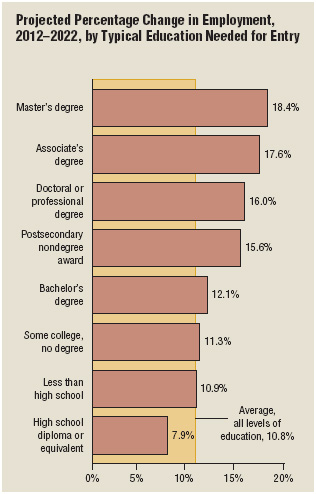What Are Entry-Level Jobs?
Entry-level jobs are jobs that can be held by a job seeker who has completed a certain level of education, such as an undergraduate degree or a vocational school degree, but lacks work experience in the specific field, industry, or business he or she studied in school. Although many types of jobs can be considered entry level—from a receptionist to an accountant to a junior associate at a law firm—entry-level positions are usually the first step in a career path. Entry-level jobs provide the basic experience needed to apply for and move into more advanced positions, including those in management and administration. Sometimes workers will hold several entry-level positions to gain needed job experience and to find the right fit for their long-term career track.
What Are the Types of Entry-Level Jobs?

Entry-level jobs fall into several categories. Some entry-level jobs do not require specialized education or training. These are the type of jobs that teenagers and college students often have during summer vacation or while attending school. These jobs could include working as a cashier or on the sales staff at a retail store. While such positions can be entry level if you are looking for a career in retail, they can also be seen as temporary positions that provide a short-term means of income, depending on your perspective and needs.
Many professional entry-level jobs require at least some training or educational achievement, and many will require new employees to complete additional training once they are hired. For example, if you graduate with a degree in education, you might be hired into an entry-level teaching position, but you would not be hired for a more senior position, such as a school administrator. Moreover, once hired, you will be trained and monitored by more experienced teaching staff. If you do not immediately find a teaching position, you may want to consider other entry-level positions, such as a teacher's assistant job, in order to gain classroom experience and improve your chances for being hired as a teacher when positions become available.

Entry-level jobs offer a first step into a potential lifelong career path for many individuals. Some do not require prior work experience and can provide valuable growth and development opportunities. IQONCEPT/SHUTTERSTOCK.COM.
What Are the Characteristics of Entry-Level Jobs?
Although there are many types of entry-level jobs, there are some commonalities among them. Most are intended to give you experience and understanding of a business through tasks that are routine and often closely supervised. A number of entry-level positions include serving as aides, assistants, or team members to people who are further along in their careers.
Many entry-level jobs are not difficult, but they can be demanding. For example, if you want to become a film or video editor, you might begin your career in an entry-level assistant editor position. This entry-level position primarily exists to support the film editor and allow him or her to focus on editing the project at hand. Over time, you could work your way up to an editor position.
How Do Entry-Level Jobs Differ from Other Types of Jobs?

Unlike most other full-time career jobs, entry-level positions are not intended to be the only job you will hold over the course of your career. Instead, they are the first stepping stone on a career path. You are not expected to hold an entry-level job long-term but to move or advance to a new position after gaining needed experience and credibility.
After holding one entry-level job, you might take another one to gain different job skills or further focus your career path. Entry-level positions can lead to junior management positions or allow you to advance in other ways within a company. For example, if you are seeking to spend your career in public relations, you might take an entry-level position as a public relations assistant, then become a public relations account manager or publicist yourself.
What Are the Advantages of Entry-Level Jobs?
There are many advantages to taking an entry-level job. You will be able to gain experience in your chosen field, without the pressures that come with being in charge. You will be expected to learn on the job, and some entry-level positions include paid training and certifications, depending on the nature of the position. At the same time, entry-level positions will offer you more in-depth experience than you would likely acquire through an internship. Many entry-level positions, especially career-track jobs, also include benefits and perks such as health insurance, retirement plans, paid time off, bonuses, and tuition reimbursement.

Except for those with high school diplomas or equivalents or lower, the level of education needed for entry-level jobs is expected to grow through 2022. ILLUSTRATION BY LUMINA DATAMATICS LTD. © 2015 CENGAGE LEARNING®. U.S. Bureau of Labor Statistics. “Projected percentage change in employment, 2012–2022, by typical education needed for entry,” Spotlight on Statistics 2013 [online] from http://www.bls.gov/spotlight/2013/statistics/home.htm.
What Are the Disadvantages of Entry-Level Jobs?
Because of your lack of experience and the very nature of entry-level jobs, you will be among the lowest-level employees and receive a low starting salary relative to employees with more experience. You also most likely will have little responsibility relative to your superiors. In an entry-level position, you learn the business from the ground up, and, from the perspective of many higher level employees, you are there to pay your dues. Entry-level jobs can sometimes be time consuming and boring. Recent college graduates may even find themselves feeling that they are overqualified for much of the work they do as part of an entry-level job.
To avoid major disadvantages, you should be aware that not all entry-level positions will start you on the career path you desire, and some require you to put forth effort that will not further it. Before taking an entry-level position, understand what your responsibilities will be and discern if there is a possibility for promotion. The answers to such questions will increase the chances that you are not spending time at a position that does not fit into your long-term goals.